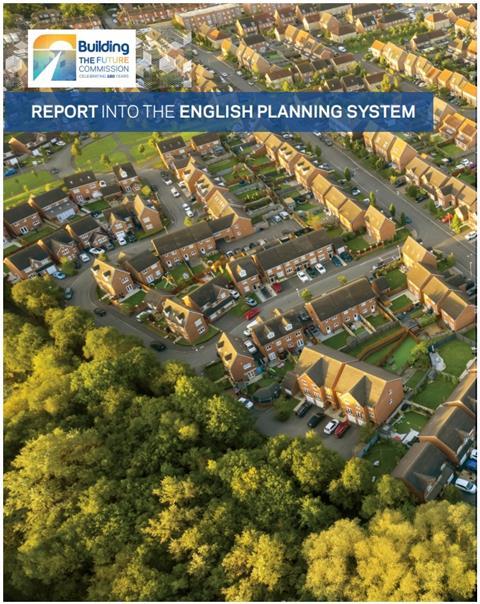Construction firms invest for the long term, we need our next government to do the same

Uncertainty is the only certainty there is. It is an overused phrase in the business world, but the last few weeks of political twists and turns – over at first net zero policies and then the future of HS2 – have left many hardened construction bosses reeling.
Rishi Sunak is not the first prime minister to perform a screeching about-turn, but perhaps what many find galling is that he has presented these announcements under the banner of “long-term decisions”. The backlash from the business community has been sizeable, summed up by this damning reaction to the HS2 cuts from the Civil Engineering Contractors Association: “This truly beggars belief, and suggests that decisions are being made for political reasons with no understanding of the stark long-term consequences.”

But is all of this just what we should expect from politics? We are, after all, just coming to the end of party conference season, all the more fevered for being – probably – the last before the next election. For those who tire of slogans and soundbites, things are only set to get worse. While many in construction would like to get polling day out of the way as soon as possible, it seems spring has been ruled out so we have about a year of political knock-about ahead of us.
>> Also read: Key takeaways and talking points from the Labour Party conference
>> Also read: What we learned from the Building the Future Commission’s inaugural conference
>> Also read: The Building the Future Commission: the interim findings revealed
And meanwhile, what has Labour been saying? On the face of it the messages coming from Liverpool were appealing, with a focus on how to get businesses to invest as part of a plan for economic growth. In particular,Keir Starmer’s promise to “get Britain building again” and his vision of “renewal” as he set out plans for the next generation of new towns should play with the sector. It has also been encouraging to hear some of the detail on speeding up planning decisions for key infrastructure and the idea of “planning passports” to fast track urban redevelopment.
What can construction businesses do to make progress when our politics is so up in the air?
The Tories and Labour have created some early and clear dividing lines, but their actual detailed election manifestos are some way off. What can construction businesses do to make progress when our politics is so up in the air? The short answer is to keep making the case for investment in the future. That was the very clear message that came through the Building the Future Commission’s conference at the end of September.
During the afternoon of debates and keynote speeches there was a strong sense of positivity in the room about the sector’s prospects. Yes, there are very considerable sectoral challenges – carbon reduction, adopting digital and MMC and grappling with an entirely new building safety regime, to name three that were discussed. But the industry is making significant steps forward.
If we take net zero first, the cost premium for low carbon solutions and a volatile policy environment are very real barriers, but there are also powerful drivers for change, particularly in the commercial sector where clients’ ESG (environmental, social and governance) commitments are scrutinised by funders. In short, for projects looking for funding it does not matter that the UK government has watered down net zero policies, what matters is financial institutions’ ESG requirements.
Being swamped with data is not much good unless you have the people to think critically about the actual problems it can be used to solve
On the digital front, we are witnessing an explosion of tools coming to market that are designed to improve productivity and cut our waste. Some of the speakers at our conference actually felt many firms need to pause for a moment to take stock of all the whizz bang tech at their disposal and spend time training their people. Being swamped with data is not much good unless you have the people to think critically about the actual problems it can be used to solve. Managing and sharing data between companies is also central to reaping its benefits. More external co-operation and less internal data hoarding would help.
The same ideas around industry co-operation carried over to discussions about building safety, an area that has seen rapid change since the Grenfell disaster. In essence, when faced with a huge amount of new information and processes, many of our speakers advised firms to use systems already in place and to work collectively.
Another highlight of our conference was the launch of our Report into the English Planning System, which calls not for a radical overhaul but for some key interventions – including adequate funding - that experts agree would give the current system a chance to work. This 20-page report contains achievable recommendations that we have put forward to all three of England’s main political parties.
But the backdrop to all of these positive ideas is an industry weariness with policy churn, and with politicians who set targets without a plan to achieve them. Speaking to our conference audience, Sir John Armitt, chair of the National Infrastructure Commission, summed up the exasperation best when he said the country needs a “long-term plan that is forged collaboratively between public and private sectors – and then, crucially, sticking to it. This is the missing link between high level plans and targets, and getting stuff done on the ground”.
Construction needs to argue for strategies based on three key ingredients: vision, commitment and consistency. We need political leaders who will listen to evidence-based arguments for decades-long investment plans and who have the patience to see it through. There are solutions to the problems we can see in this country’s built environment, but we need to be frank with our political leaders: investing in construction is for the long term, it is not a quick fix.
Chloe McCulloch, editor, Building
About the commission

The Building the Future Commission is a 12-month project looking at radical and challenging ideas that could help transform the built environment.
The campaign aims to tap into innovative ideas, amplify them and be an agent for change.
The major project’s work will be guided by a panel of major figures who have signed up to help shape the commission’s work culminating in a report published at the end of the year.
The commissioners include figures from the world of contracting, housing development, architecture, policy-making, skills, design, place-making, infrastructure, consultancy and legal. See the full list here.
The project is looking at proposals for change in eight areas:
- Education and skills
- Housing and planning
- Energy and net zero
- Infrastructure
- Building safety
- Project delivery and digital
- Workplace culture and leadership
- Creating communities
>> Editor’s view: And now for something completely positive - our Building the Future Commission
>> Click here for more about the project and the commissioners
Building the Future is also undertaking a countrywide tour of roundtable discussions with experts around the regions as part of a consultation programme in partnership with the regional arms of industry body Constructing Excellence. There is also a young person’s advisory panel.
The Building the Future Commission’s Report into the English Planning System



























No comments yet